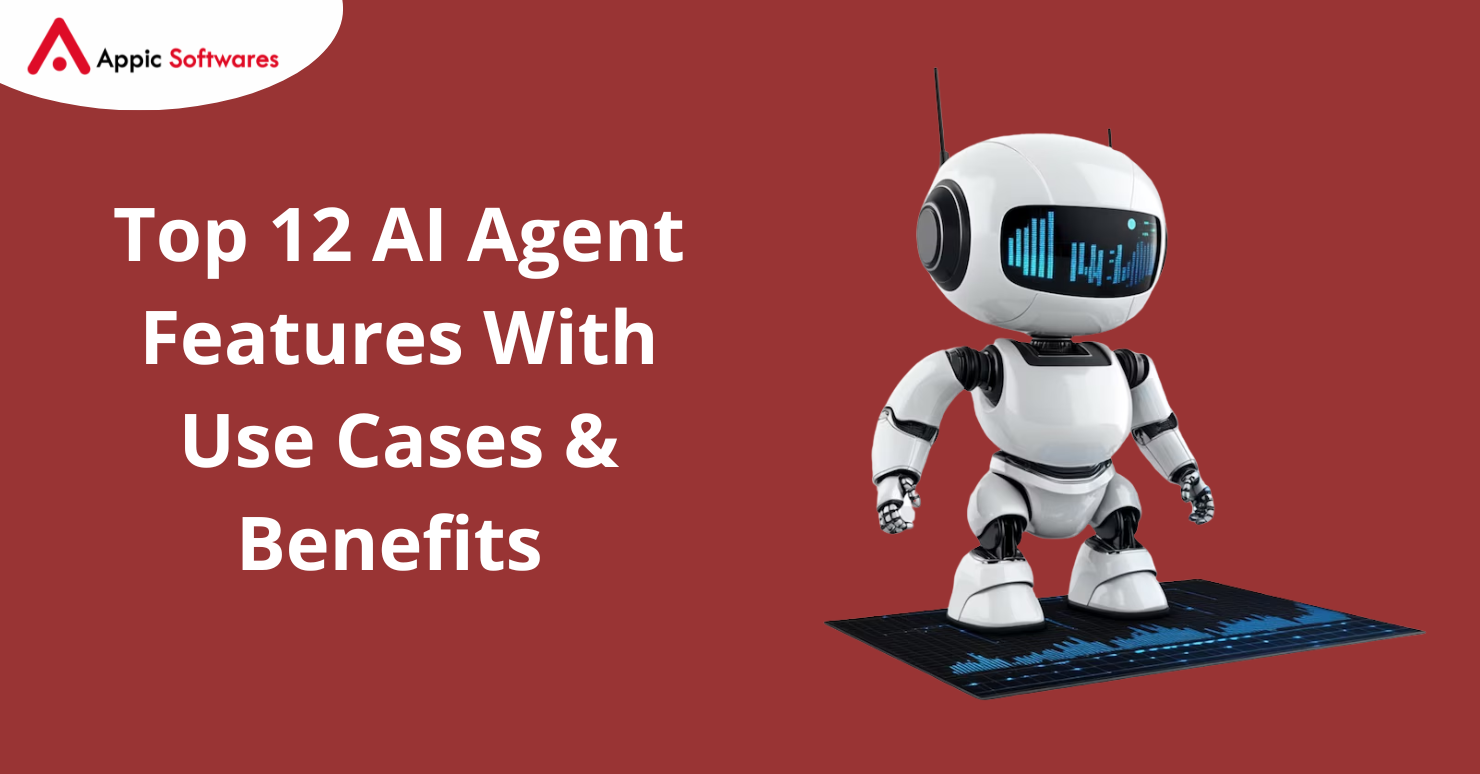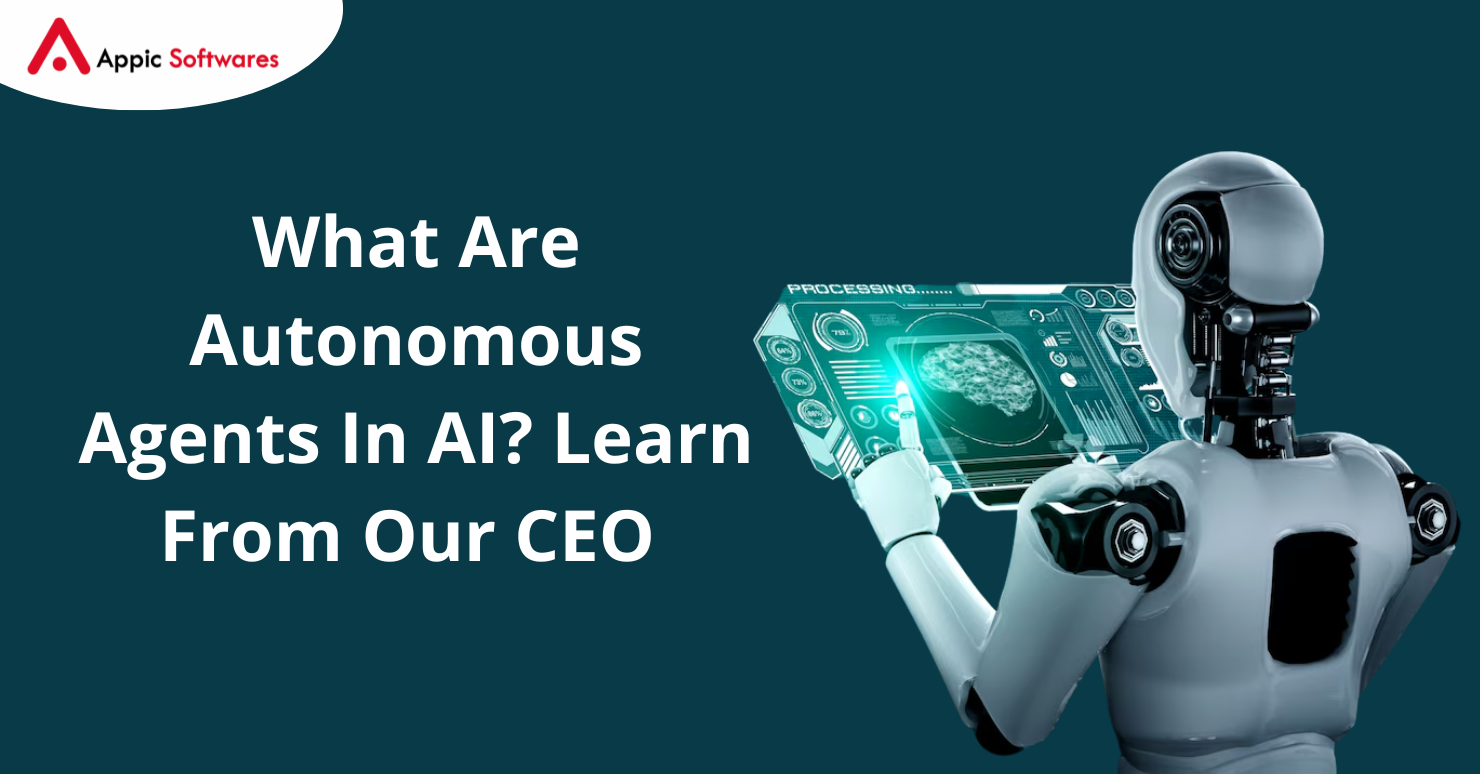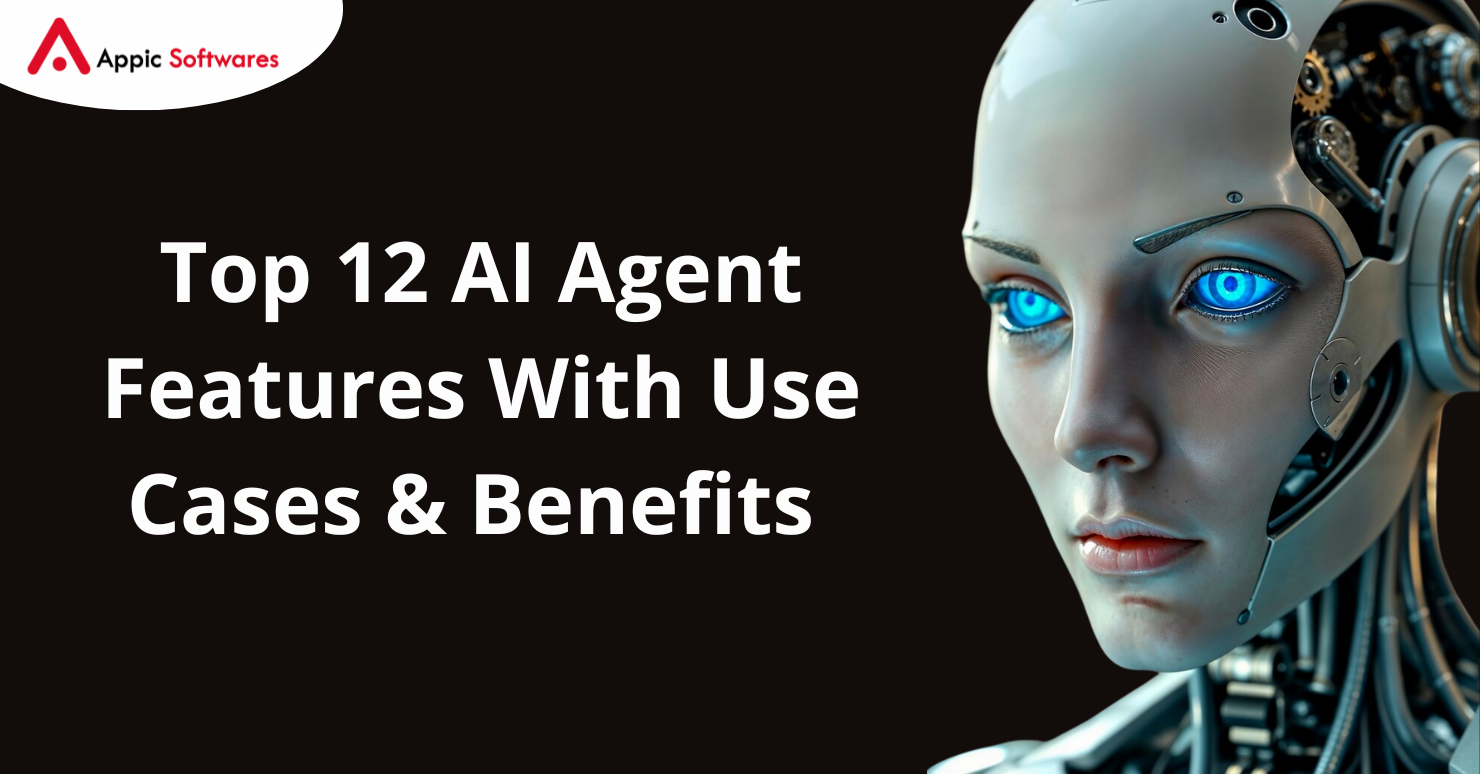Become 10X Efficient With Our AI Agent Development Solutions







What Are AI Agents And How Are They Beneficial For Your Business?
AI agents are autonomous software systems built on advanced artificial intelligence technologies, primarily leveraging Large Language Models (LLMs) as their cognitive foundation. These agents combine natural language processing, machine learning, and decision-making capabilities to perform complex tasks with minimal human intervention.
Benefits Of AI Agent Development
Here are some business benefits of developing AI Agents
- They learn and adapt to new insights on their own, reducing the efforts of developers.
- AI Agents automate repetitive tasks
- It reduces human errors which helps in saving time and cost.
- AI agents provide experiences by analyzing user data.
- With natural language processing (NLP), AI agents understand and respond to customer queries more effectively.

Our AI Agent Development Services
Here is a list of different types of AI agents that our AI engineers have worked with and developed for clients across the globe.
02. Recommendation AI Agents
03. Autonomous Vehicles
04. Predictive Maintenance AI Agents
05. Stock Advisory AI Agents
06. Computer Vision AI Agents
07. Natural Language Understanding AI Agents
08. Fraud Detection AI Agent
09. Sales AI Agent
10. Customer Retention AI Agents
"The collaborative efforts of Appic Softwares in our investment app platform proved to be a transformative experience. Their UI/UX design expertise and nuanced comprehension of user requirements resulted in a visually captivating and easily navigable interface. The team's unwavering commitment to excellence was evident as they diligently incorporated feedback, keeping us appraised of their progress throughout the engagement."

AI Agent Development Tech Stack
Developing an intelligent AI agent requires a meticulously chosen technology stack to ensure seamless functionality, scalability, and top-notch security. Below is a comprehensive overview of the tools and technologies used by our AI developers.
The backbone of AI agent development is programming languages that are versatile and well-supported by AI frameworks
Python
The preferred language for AI and machine learning development due to its simplicity and extensive libraries like TensorFlow, PyTorch, and sci-kit-learn. Python excels in rapid prototyping and robust model development.
JavaScript/TypeScript
Key for building web-based AI agents, especially those requiring seamless frontend-backend communication. Frameworks like Node.js and libraries such as TensorFlow.js are commonly used.
R
Ideal for data-heavy AI applications involving statistical analysis and predictive modeling.
Java
Best suited for enterprise-grade AI applications that demand stability and scalability. It integrates well with Hadoop and Apache Spark for handling big data.
Looking For An Experienced AI Agent Development Company?
Partner with us and digitalize your AI Agent, from ideation to launch we will be your success partner.

Explore Related Services
AI Agent Development involves the creation of intelligent software systems designed to autonomously perform tasks, interact with users, and make decisions based on data. These AI agents use machine learning algorithms, natural language processing (NLP), and other AI techniques to automate processes and improve efficiency in a variety of industries, including customer service, sales, and healthcare.
AI agents can provide several key benefits to businesses. They can automate repetitive tasks, enhance customer engagement through personalized experiences, improve decision-making with predictive analytics, and reduce operational costs. By integrating AI agents, companies can provide 24/7 support, increase efficiency, and scale operations effortlessly.
- Customer Support Agents: Handle inquiries and provide assistance through chatbots or voice assistants.
- Sales AI Agents: Automate lead generation, qualification, and follow-ups.
- Marketing AI Agents: Personalize user experiences and optimize marketing campaigns.
- Data Analytics AI Agents: Analyze large datasets to extract valuable insights and assist in decision-making.
Each AI agent can be customized based on specific business requirements.
- Machine Learning: Algorithms and models that enable AI agents to learn and improve from data.
- Natural Language Processing (NLP): Enables AI agents to understand and generate human language.
- Deep Learning: Advanced neural networks used for complex tasks like image recognition and natural language understanding.
- Cloud Computing: Scalable infrastructure for hosting AI agents and processing large datasets.
These technologies work together to build powerful AI agents capable of automating a wide range of tasks.
The timeline for developing an AI agent varies depending on the complexity and scope of the project. Simple AI agents may take a few weeks to develop, while more advanced agents with sophisticated features such as NLP or predictive analytics could take several months. Factors such as data preparation, model training, and integration with existing systems can also influence the development time.
- Complexity: Basic AI agents cost less, while advanced agents with complex functionalities are more expensive.
- Data Requirements: Gathering and cleaning data for training purposes can add to the cost.
- Customization: The level of customization and integration with existing systems influences development costs.
- Team Expertise: Skilled data scientists and developers may demand higher fees, especially for advanced AI solutions.
The total cost can range from a few thousand to several hundred thousand dollars, depending on the project's scale and requirements.
Yes, AI agents can be integrated with your existing systems, including CRMs, enterprise resource planning (ERP) systems, or databases. Integration allows the AI agent to leverage data from multiple sources and provide personalized interactions. The integration process may involve developing APIs or custom connectors, depending on the complexity of the systems involved.
AI agents are designed to adhere to strict security protocols to protect sensitive data. Data encryption, secure communication channels, and access controls are implemented to ensure that all user interactions are safeguarded. Additionally, AI agents can be developed to comply with regulations such as GDPR, HIPAA, and other data privacy standards, ensuring that user data is managed responsibly and securely.
Yes, AI agents are highly scalable and can grow with your business. By leveraging cloud-based infrastructure, AI agents can handle increasing user interactions and data volumes without compromising performance. As your business expands, the AI agent can be optimized or upgraded to handle more complex tasks, increased traffic, or new functionalities.
- Task Complexity: Determine if the AI agent will handle simple tasks (e.g., answering FAQs) or more complex processes (e.g., predictive analytics).
- Integration: Choose an AI agent that integrates seamlessly with your existing systems.
- Customization: If your business has unique requirements, consider an AI agent that can be customized to fit your workflows.
- Budget: Determine the budget available for development and maintenance.
By analyzing these factors, you can select an AI agent that best aligns with your business objectives.
AI agents improve through machine learning techniques, where they are exposed to vast datasets to learn patterns and behaviors. Over time, as more data is fed to the agent, its algorithms become more refined, leading to better decision-making and more accurate predictions. Additionally, continuous feedback loops allow the agent to adapt to changing conditions and user interactions, enhancing its performance.















